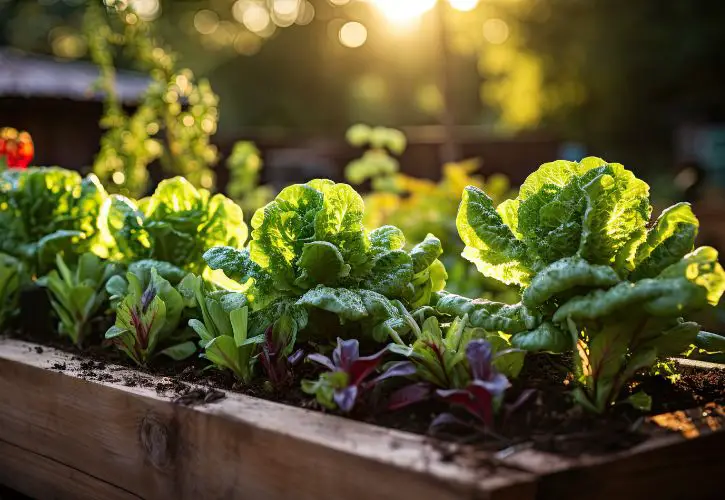Creating a sustainable garden in your backyard is more than a hobby; it’s a celebration of the earth, a homage to its bounty, and a commitment to bettering the environment. Plus, having a backyard garden lets you enjoy the rewards of fresh, organic produce straight from your home.
However, diving into this venture may seem daunting, especially if you are new to the concept of sustainable gardening. These tips to create a sustainable garden in your backyard will deconstruct the complexity of the subject to help you make your own eco-paradise.
Planning Your Garden Layout
The first step is to carefully plan your garden layout to ensure its functionality and safety for you and what you grow. Consider factors such as sunlight exposure, proximity to a water source, and soil type in your backyard. Plot where you want to place your vegetable beds, compost bin, and rainwater harvesting system, and make sure your backyard can accommodate the garden’s needs.
Building a Compost Bin
A compost bin is essential to a sustainable garden because it will help you reduce food waste, recycling it as nutritious soil for optimal plant growth. Composting your kitchen scraps reduces the amount of waste going to landfills and provides nutrient-rich compost for your garden. You can compost things like vegetable scraps, coffee grounds, eggshells, and so much more. However, not all organic materials are compostable; for example, you shouldn’t compost meat, dairy, and oil.
Selecting What To Grow
Next, select easy vegetables to grow in your garden to speed up and settle the process. Some vegetables, like tomatoes, cucumbers, and peppers, grow quickly and do well in most climates. Choosing vegetables that you and your family enjoy eating is also essential, as this will motivate you to tend to your garden regularly.
Installing a Rainwater Harvesting System
Installing a rainwater harvesting system is a great way to reuse water and one of the main tips to save the environment. Rainwater is ideal for watering plants, as it is free of the chemicals in tap water. You can easily install a rain barrel to collect rainwater from your rooftop and use it to water your plants. Just remember not to keep the water stored for long periods because rainwater can carry bacteria, parasites, and viruses that can quickly develop.
Practicing Organic Gardening Techniques
Practice organic gardening techniques to prevent environmental damage and keep your vegetables looking and tasting fresh. To create a sustainable garden in your backyard, avoid using chemical pesticides and fertilizers. Instead, opt for natural alternatives, like neem oil, vinegar, or Epsom salts.
Building a sustainable garden in your backyard is a fulfilling project that benefits both you and the environment. With these tips, you can easily create a garden that provides fresh produce while promoting ecological balance.
